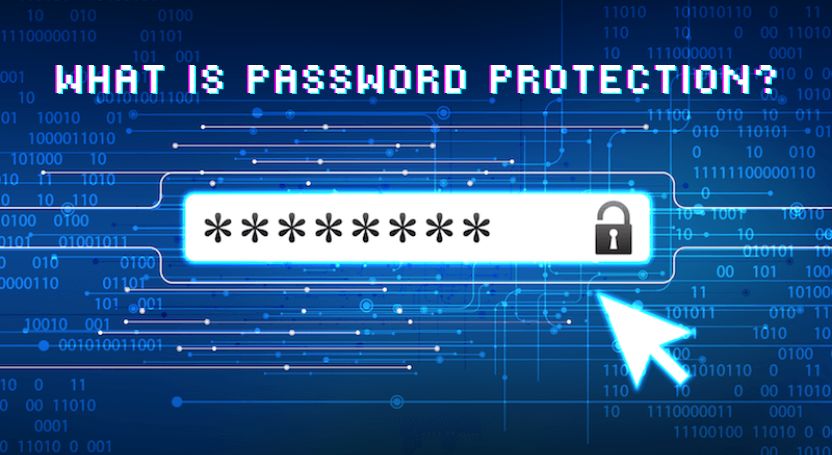The Importance of Password Complexity: How Password Crackers Are Making It Easier Than Ever
Table of contents
No headings in the article.

Introduction to password complexity
In today's digital age, where our personal and professional lives are increasingly intertwined with technology, the importance of password complexity cannot be overstated. Passwords are the first line of defense against unauthorized access to our online accounts, and yet many users still underestimate the significance of creating strong and unique passwords. In this article, we will explore why password complexity is crucial in safeguarding our digital identities, the common techniques employed by password crackers, the dangers of weak passwords, and best practices for creating strong passwords that can withstand even the most sophisticated hacking attempts.
Why password complexity is important
The primary purpose of a password is to prevent unauthorized access, and the complexity of a password plays a crucial role in achieving this objective. Password crackers are constantly evolving, utilizing advanced algorithms, and powerful computing resources to decipher passwords. A weak and easily guessable password can be cracked within seconds, leaving your sensitive information vulnerable to exploitation. By using complex passwords, comprising a combination of uppercase and lowercase letters, numbers, and special characters, you significantly increase the difficulty for password crackers to decipher your password.
Moreover, password complexity is especially crucial due to the prevalence of password reuse. Many users tend to reuse their passwords across multiple online platforms, making them susceptible to widespread security breaches. By employing complex passwords, you reduce the risk of falling victim to such attacks, as even if one of your passwords is compromised, the unique and complex nature of your other passwords will prevent unauthorized access to your other accounts.
Common password-cracking techniques
Password crackers employ various techniques to crack passwords, exploiting vulnerabilities in security systems. One common technique is brute-force attacks, where the cracker systematically tries every possible combination of characters until the correct password is found. This method is time-consuming but can be effective against weak passwords. Another technique is known as dictionary attacks, where the cracker uses a precompiled list of commonly used passwords or words found in dictionaries. This method is often successful against users who choose easily guessable passwords based on common words or phrases.
More advanced password cracking techniques include rainbow table attacks and social engineering. Rainbow tables are precomputed tables that map hash values to their corresponding plaintext passwords, allowing password crackers to quickly retrieve the original password. Social engineering involves manipulating individuals to divulge their passwords willingly, often through deception or psychological manipulation. These techniques highlight the need for strong and complex passwords that are resistant to such attacks.
The dangers of weak passwords
Weak passwords pose a significant risk to our online security and can result in severe consequences. Password crackers can gain unauthorized access to our personal and financial information, leading to identity theft, financial fraud, and even blackmail. Additionally, weak passwords can compromise the security of organizations and businesses, allowing hackers to infiltrate their systems and steal sensitive data. The repercussions of these breaches can be catastrophic, resulting in financial losses, reputational damage, and legal liabilities.
Furthermore, weak passwords can also enable password spraying attacks, where hackers attempt to gain access to multiple accounts by using a small number of commonly used passwords. This type of attack has proven to be successful against users who rely on weak passwords, as hackers exploit the predictability of these passwords. By using complex and unique passwords, we can protect ourselves and our organizations from the devastating consequences of weak passwords.
Best practices for creating strong passwords
Creating strong passwords is essential in defending against password crackers and protecting our digital identities. To ensure the utmost security, follow these best practices:
Length: Opt for longer passwords, as they are more challenging to crack. Aim for a minimum of 12 characters.
Complexity: Include a mix of uppercase and lowercase letters, numbers, and special characters in your passwords. Avoid predictable patterns or sequences.
Avoid personal information: Do not use personal details, such as your name, birth date, or address, as part of your password. This information can be easily obtained by hackers.
Avoid common words: Steer clear of using common words or phrases found in dictionaries, as these are susceptible to dictionary attacks.
Unique passwords: Use a different password for each online account to mitigate the risk of widespread security breaches.
By implementing these best practices and regularly updating your passwords, you can significantly enhance your online security and protect yourself from password crackers and hackers.

In conclusion, the importance of password complexity cannot be emphasized enough. In an era where password-cracking techniques are becoming increasingly sophisticated, it is crucial that we prioritize the creation of strong and unique passwords. By understanding the risks associated with weak passwords, familiarizing ourselves with common password-cracking techniques, and adopting best practices for password creation, we can fortify our online security and safeguard our digital identities. Remember, your password is your first line of defense, so make it robust and impenetrable. Stay proactive, and stay secure!

